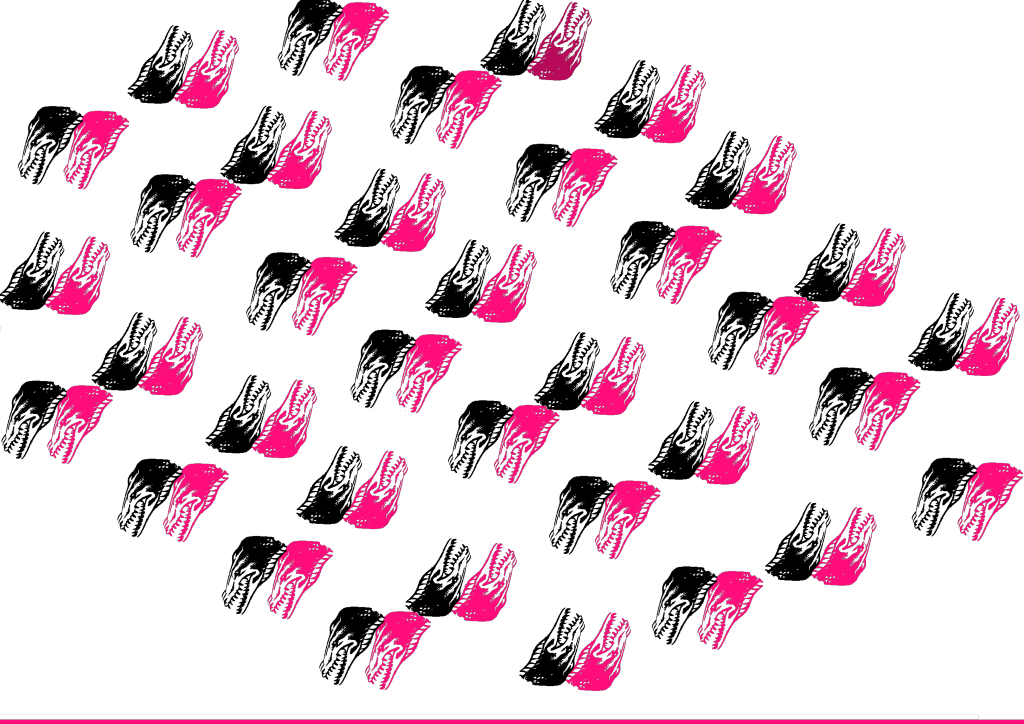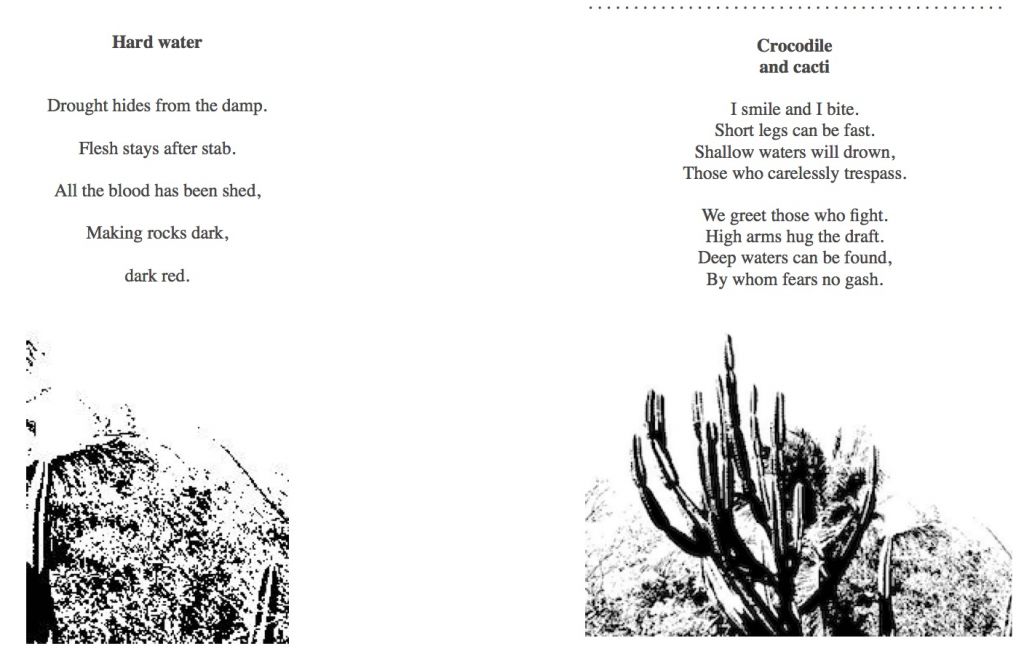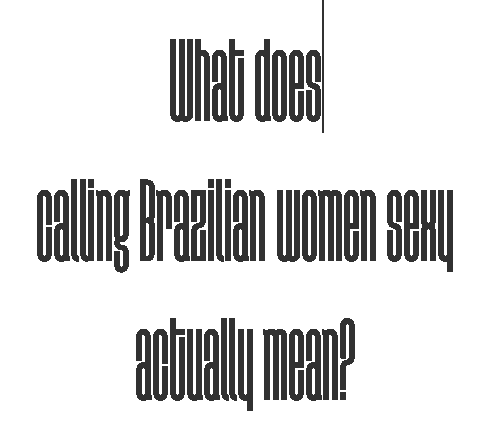DESVIOO PRINTABLE / DESVIOO READABLE / ORDERS BY MAIL
send address to diyworkshop[at]riseup[dot]net
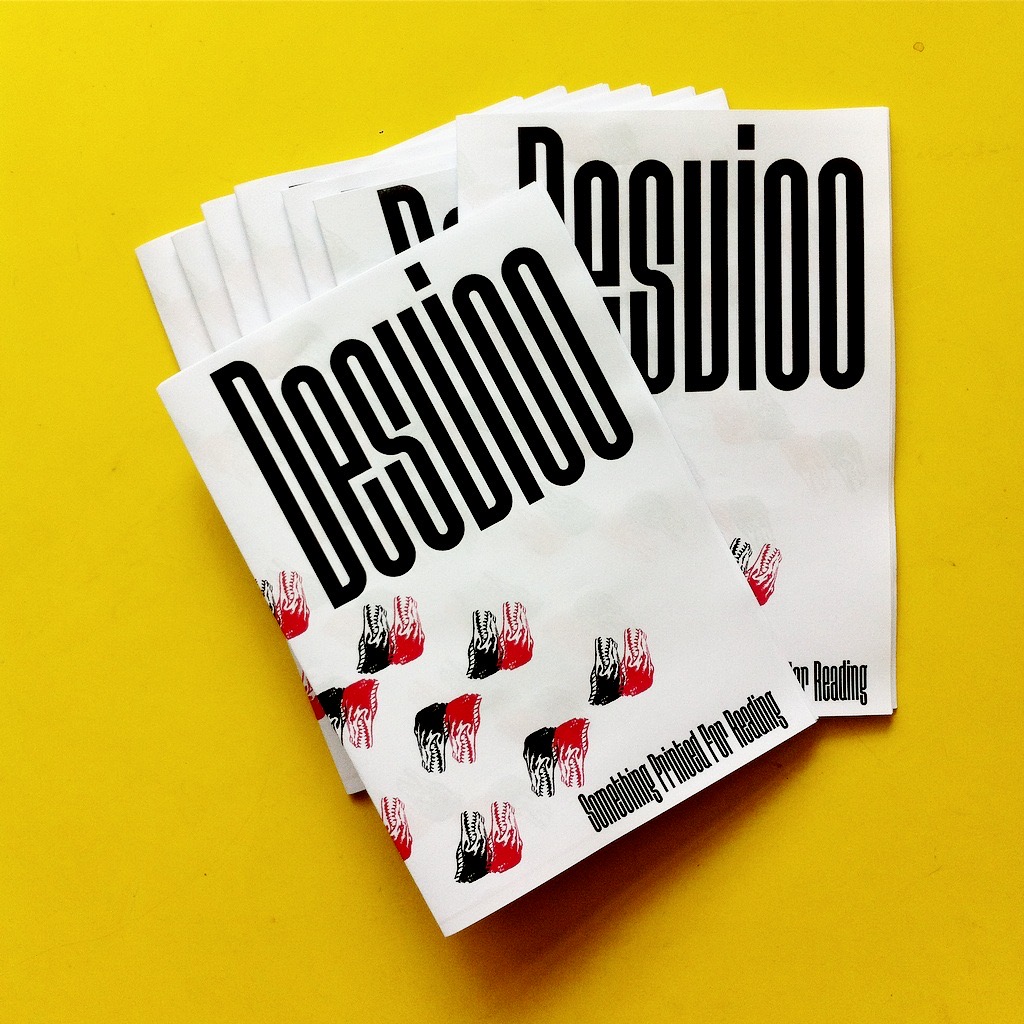
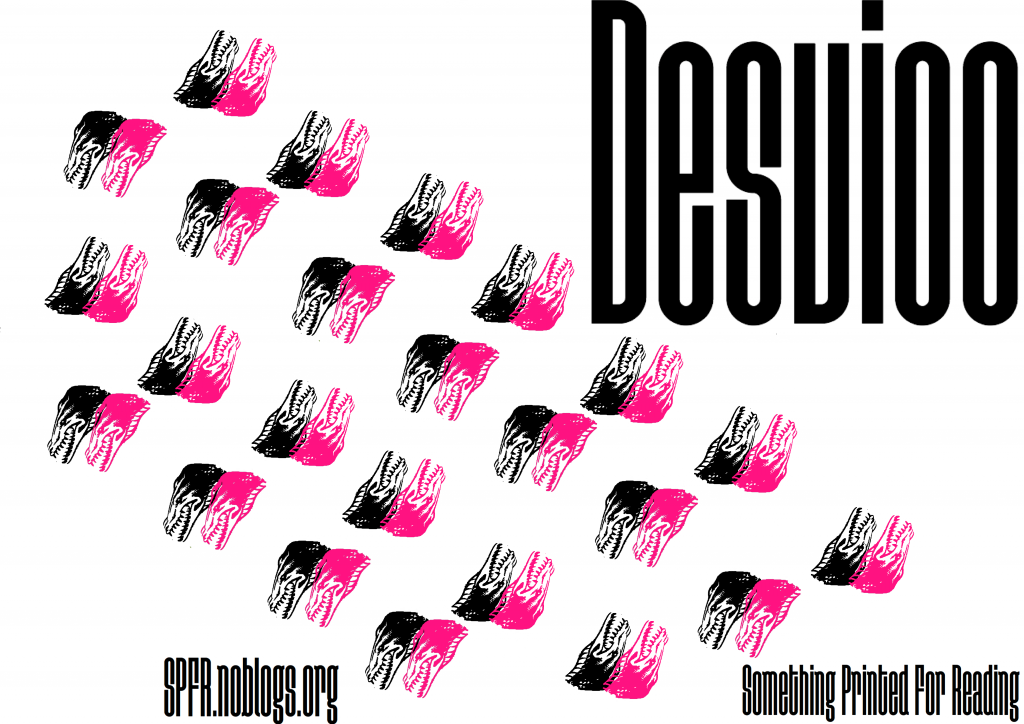
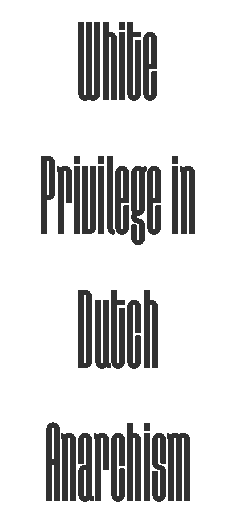 De Pinkster Land Dagen (Pentecost days in dutch) started in 1927 by young anarchists from the Netherlands. In 1933, they bought a potato field from which they made a camping site, and where they organize a drug/alcohol free Anarchist festival every year.
De Pinkster Land Dagen (Pentecost days in dutch) started in 1927 by young anarchists from the Netherlands. In 1933, they bought a potato field from which they made a camping site, and where they organize a drug/alcohol free Anarchist festival every year.
At PL 2017, University of Color gave a workshop on white privilege and “post”-colonial identity as an attempt to start a conversation about decolonizing anarchism. The workshop and talk was difficult and many of the responses were problematic to many different degrees. We don’t believe this was due to a few loose cannons in the audience, but more likely illustrated the systemic problems in these circles that we aimed to tackle with the workshop.
This attempt requires a tremendous amount of emotional labour on the part of the UoC members, and here we would like to outline why.
– This is not a philosophical discussion about subjects we read in books. It’s about the pain we are still feeling now, and struggle with every day. Books can help white people learn about this, and for people of color to find the vocabulary to express and process this pain. If you are a white man and you don’t listen to women of color on issues of racism and sexism, don’t be surprised when they choose not to listen to you. If you think you understand racism better than people of color then you are exercising white privilege, white supremacy and reproducing colonizer’s attitudes.
– If white people are hurt or offended when they are called ‘white’ this is called White Fragility. This means that they experience the issue of ‘race’ so rarely, that when they are confronted with this statement, the situation itself is the worst version of discrimination they have faced. People of color are confronted with this so often that if they reacted extravagantly every time someone pointed out their race, they literally would not be able to do anything else in life. It would also probably lead to arrest or death.. One person calling you white is not the same as a whole world, institutions, governments, policies, armies, physical violence, history and so on constantly labeling you and controlling your life. Color-blindness is an offensive exercise of white privilege and does not help people of color, or lead to the eradication of racism. Denying the problem because you get to does not lead to solving the problem for those who actually suffer from it.
“[…] series of racial micro-agressions make it virtually impossible for people of color to stay in a white dutch anarchist space without feeling subjugated.”
– There is no such thing as ‘reverse racism’. Calling someone white is not a racist act, it’s only a statement of a fact, the fact that there is Institutionalized racism, there has been for hundreds of years, and white people just do not experience it. It’s called white privilege and this is not a racist statement. Racism is not discrimination based on skin color, it’s systematic institutionalized oppression of people of color and the ‘global south’ since the genocide of our people and our culture by western European entities.
– Equating colonial violence in Latin America to the Dutch struggle between Catholics and Protestants: Don’t. Color blindness/white privilege at play again.
– Equating culture to nation states: Culture is something people in colonized countries had to fight to preserve in-spite of European nation states. We are proud of our culture and we fight to preserve it, it does not mean we are proud of our Government. It’s also problematic that the anarchists that present this argument don’t acknowledge the existence of the anarchist culture they so cherish.
– What’s wrong with white European men leading indigenous, feminist, and other Latin American movements? Everything. Indeed white men can be aware of the issues, but they also need to be aware of how much space they take, and to allow the space for people to speak for themselves. We don’t want to need the validation of white European men because this is just another exercise of colonial attitudes. Even with the best intentions, white dutch anarchist men acting like they know better around people from the ‘global south’ creates an incredibly unsafe environment for people of color. They can try, but they just don’t understand what it’s like for immigrants of color, and how we often feel like we need to ask permission to be somewhere, or to say or do something.
– If you are a white person and you truly feel like you know better than a person of color when it comes to racism, or you know better how to communicate ideas on the subject… stop and think ‘Where is this feeling coming from?’ ‘Where is it rooted?’ ‘Is it valid?’. It’s coming from entitlement, which comes from being a white European. It’s rooted in white supremacy, it’s not valid and it can create an unsafe environment for people of color. For instance, it is very problematic when Dutch people try to educate a Brazilian woman on Brazilian ‘post’-colonial identity.
“Many white people are willfully ignorant because it’s in their best interest to maintain the [racist] status quo, while also maintaining the ‘not racist’ label.”
– As a white dutch anarchist it’s important to realize that disagreeing with a person of color doesn’t just mean philosophical differences with any other fellow comrade, but a very real and practical exercise of racial power. Because white dutch anarchists have the access to resources, spaces and history in the Netherlands. These disagreements lead to alienation and series of racial micro-agressions that make it virtually impossible for people of color to stay in a white dutch anarchist space without feeling subjugated.
– For instance: Tone policing. ‘We agree (in theory) with what you are saying but we don’t like how you are saying it’. That is to say: you are probably right because I’ve read it in a book, but I don’t like it that you are so emotional about it because it’s not ‘gezellig’ or respectful to us. The thing is that of course we are emotional about it because we are still suffering and our wounds are still open. Many white people are willfully ignorant to this because it’s in their best interest to maintain the [racist] status quo, while also maintaining the “not racist” label.
I’ve never felt safe in this space (PL and the Dutch white-anarchist-activist scene). Even though it’s wonderful that so many people to some degree acknowledge the problem of white supremacy, and want to make this community safer, it’s been an uphill battle for me in the last 7 years and I’m tired of it. It’s great that people see the need for these kinds of discussions and aim for diversity in the community. However, it’s not great to rely on people of color to do the work for you, and we hope white anarchists find ways to address and solve this problem themselves.
 Almost every time I tell someone they are white or Dutch, they respond defensively with: “But you are kind of white too”, or “you’re not black”, or the best one “How would you feel if I called you Latina or Brazilian?”. It’s laughable and worrying that they take such a statement as an attack. Yes, I am Latin American, and I am Brazilian. No, I am not black. That doesn’t change the fact that they are white and Dutch. I think they do this because they think that me labeling them what they are and pointing out their privileges implies I don’t have privileges and therefore I’m better. It’s actually the opposite, I point out their privileges because I see them in myself. This wrong assumption is a serious aggression to people of color because Western Europeans have always felt comfortable labeling others while remaining neutral, and this has been paramount to the persistence of white supremacy. It’s also very telling of how unusual and repulsive it is to them to feel subjugated based on their skin color or nationality, which people of color are way too used to. Having to admit they cannot be the objective voice of reason on a subject for once is incredibly painful to people suffering from white fragility. And when it comes to racism and decoloniality, they are not the voice of reason that should lead the movement. For once they will not be the center of attention, and we do not want a seat at their table.
Almost every time I tell someone they are white or Dutch, they respond defensively with: “But you are kind of white too”, or “you’re not black”, or the best one “How would you feel if I called you Latina or Brazilian?”. It’s laughable and worrying that they take such a statement as an attack. Yes, I am Latin American, and I am Brazilian. No, I am not black. That doesn’t change the fact that they are white and Dutch. I think they do this because they think that me labeling them what they are and pointing out their privileges implies I don’t have privileges and therefore I’m better. It’s actually the opposite, I point out their privileges because I see them in myself. This wrong assumption is a serious aggression to people of color because Western Europeans have always felt comfortable labeling others while remaining neutral, and this has been paramount to the persistence of white supremacy. It’s also very telling of how unusual and repulsive it is to them to feel subjugated based on their skin color or nationality, which people of color are way too used to. Having to admit they cannot be the objective voice of reason on a subject for once is incredibly painful to people suffering from white fragility. And when it comes to racism and decoloniality, they are not the voice of reason that should lead the movement. For once they will not be the center of attention, and we do not want a seat at their table.
I’m an incredibly privileged person, and I’m always trying to deal with this privilege carefully, critically and consciously. It’s tricky to recognize when you are being treated differently or being discriminated against, because you can’t switch passports or skin color freely. Sometimes we don’t see the micro-agressions and oppression because we know nothing else. This leads to a lot of gaslighting, paranoia and many even believe black people are collectively suffering from post traumatic slave syndrome.
“Western Europeans have always felt comfortable labeling others while remaining neutral, and this has been paramount to the persistence of white supremacy”
Ironically, I learned a lot about what it is like to be Brazilian/Latina, and be treated as such, only after I became European. At borders, at clubs, with partners, with other Brazilians, it completely changed. Traveling was so much easier, at borders I felt confidence and entitlement as opposed to anxiety and fear. Strange white men didn’t flirt with me as aggressively or asked me to dance and shake my ass. After 10 years outside of Brazil my skin became lighter due to less sun and my hair straighter due to less humidity, which also made clear the difference between being treated as a white girl or a Latina. People were inclined to think I was in Europe to study as opposed to ‘work’, both implying I was in Europe to ‘better’ myself, and implicitly expecting gratitude from me. Brazilians started talking to me as if I lived like a princess and knew nothing of the turmoil and struggle of Brazilian life. I was always fierce and political as a kid, but the European passport in particular was a radicalizing turn of events. The alienation from all sides pushed me to take the issue of Identity and belonging very seriously. White Western European people have lived sheltered from these kinds of experiences so they haven’t had the unavoidable motivation to explore their whiteness. So, white people, take this into consideration because a revolution is coming and you need to decide, you are either with us or against us. “decolonization is always a violent phenomenon” (Fanon)
References: Angela Davis, Audre Lorde, Gloria Wekker, bell hooks, Frantz Fanon, Paulo Freire and Maria Lacerda de Moura.
By Mirna Wabi-Sabi
Konfrontatie (In Dutch)
“In the period of decolonization, the colonized masses mock at these [Western] values, insult them, and vomit them up.” Frantz Fanon
